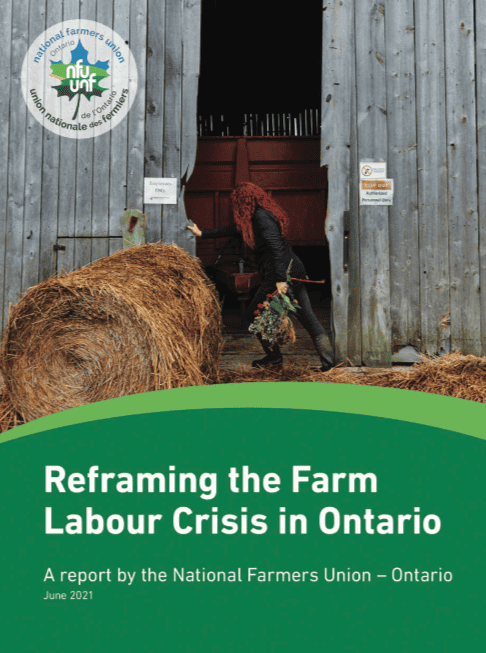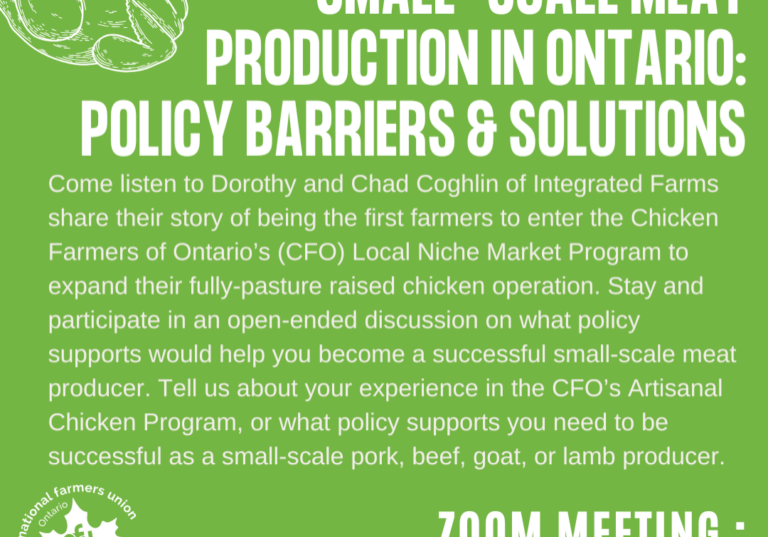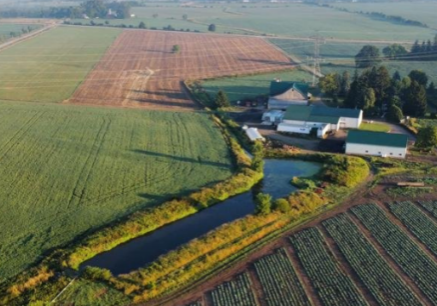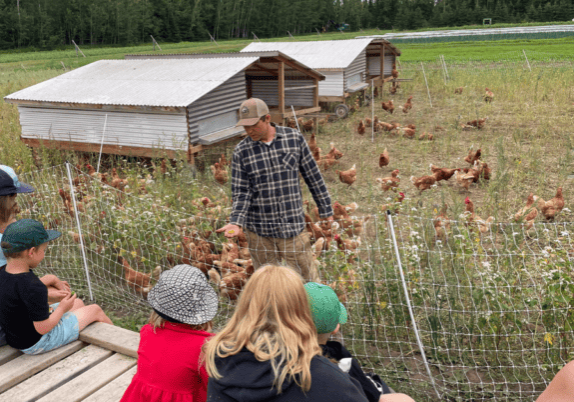Reframing the Farm Labour Crisis in Ontario

National Farmers Union – Ontario Newsletter
The Rural Voice | July 2021
What can agricultural producers on small and mid-sized farms tell us about the “farm labour crisis” and how to tackle it?
The NFU–O Farm Labour Project report, “Reframing the Farm Labour Crisis in Ontario” will be released in July 2021. The report is based on the collective knowledge of over 1,000 agricultural stakeholders from across the province, including 772 farm operator and worker survey respondents. Although there was a diversity of opinions, a number of general trends emerged that suggest the need to “reframe” how labour shortages are felt by smaller operations compared to large agribusinesses.
How is the farm labour crisis understood by local, small-scale producers?
1. The farm labour crisis is inextricably linked to the farm income crisis. Corporate agricultural suppliers rake up 95 per cent of farm revenues leaving small and mid-sized farm operations just five per cent to pay themselves and their workers. The labour of farm workers and farm operators has been devalued and undermined by corporate interests.
2. A shortage of living-wage agricultural jobs has led to the scarcity of skilled and experienced workers. There are plenty of people who are attracted to farm work and the rural lifestyle, but low wages, seasonality, and partial exemptions from key labour protections have kept many potential workers away.
3. After 30 years of free trade agreements, a capitalist global food system has decreased the market value of many agricultural commodities and ultimately set the wage floor to the lowest paid farm workers in the world. This in part has driven skilled farm workers from the Caribbean, Mexico, and elsewhere to enter restrictive seasonal labour contracts with substandard labour rights in Canada.
Why will supporting small and mid-sized farms lead to a healthier, more robust agricultural labour sector?
1. Ontario’s small to mid-sized farms are key agricultural job creators. In fact, the report finds that farms under 70 acres were more likely to be employing Ontarians than their larger counterparts. These modest farms are also knowledge incubators – they offer not only jobs, but invaluable farm training for the next generation of farmers.
2. Small and mid-sized farm operators recognize the value of the workers they employ. Even though agricultural workers are not covered under minimum wage laws, and in spite of their own financial precarity, 85 per cent of farm employers surveyed paid more than the $14.25 provincial minimum wage.
3. Common values and a positive team culture on Ontario’s small and mid-sized farms continue to attract aspiring farmers. Shared interests in local, just, and sustainable food production have created a great deal of mutuality and potential for solidarity at a local and international scale.
What initiatives do small-scale farmers recommend to tackle the living-wage/income farm labour crisis?
1. Goals for farm operators, farm organizations and other stakeholders to build farm employer and worker capacity include: providing Human Resources training for farm operators; promoting best practices for farm employers; funding training programs for new farmers and farm workers; supporting cooperative initiatives; improving farmland protection and access; organizing all farm workers under the Agricultural Employee Protection Act; and increasing consumer awareness of the undervaluing of agricultural labour.
2. Goals for municipal, provincial and/or federal support and legislation to address the precarity of farm workers and small-scale agricultural production include: increasing and enhancing farm labour grants for small and mid-sized farm operations; overhauling temporary foreign worker programs (including permanent status and enhanced labour rights); enacting universal paid sick days; offering a Basic Income for farm operators and workers; improving Employment Insurance access; and easing building codes to support on-farm housing.
Find out more by accessing the full report here: https://nfuontario.ca/new/farmlabour/reframing-the-farm-labour-crisis/
Click here to view the PDF version.
A subscription to The Rural Voice is one of the benefits of being an NFU-O member








